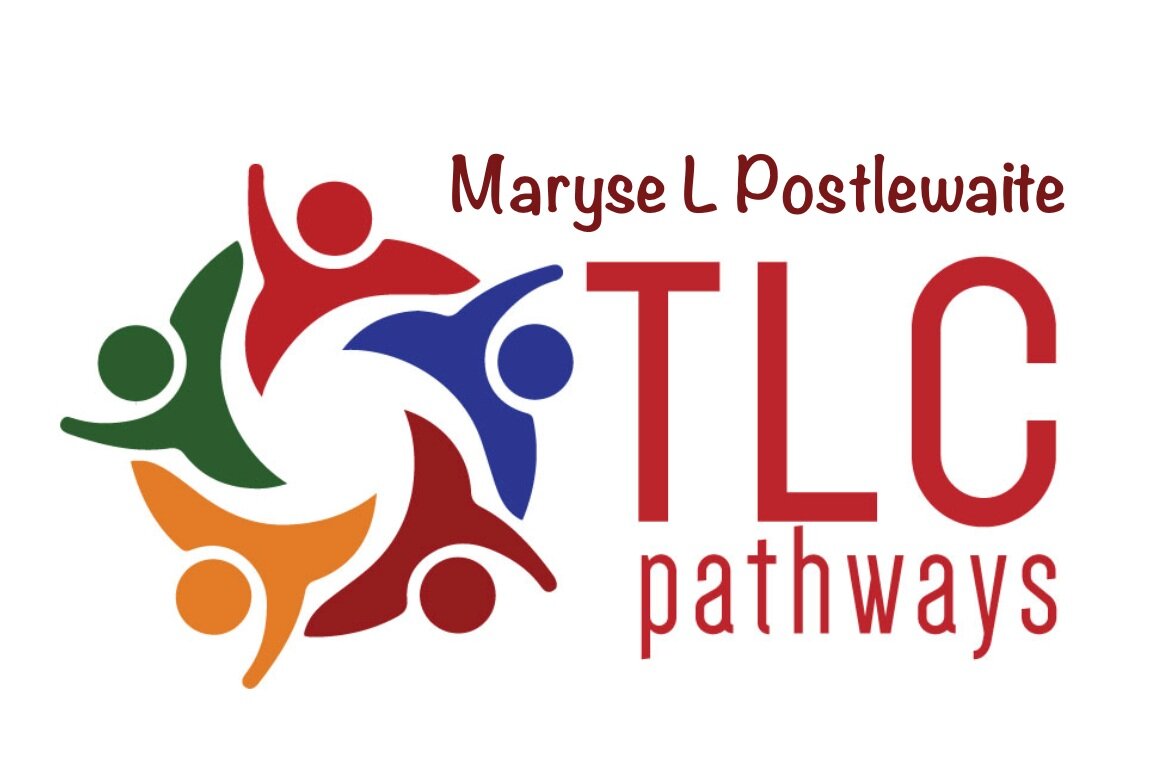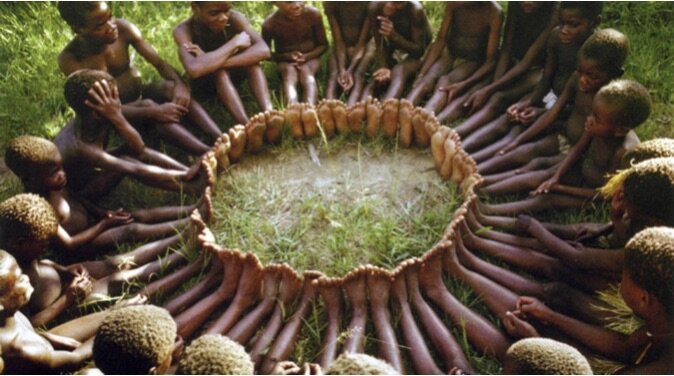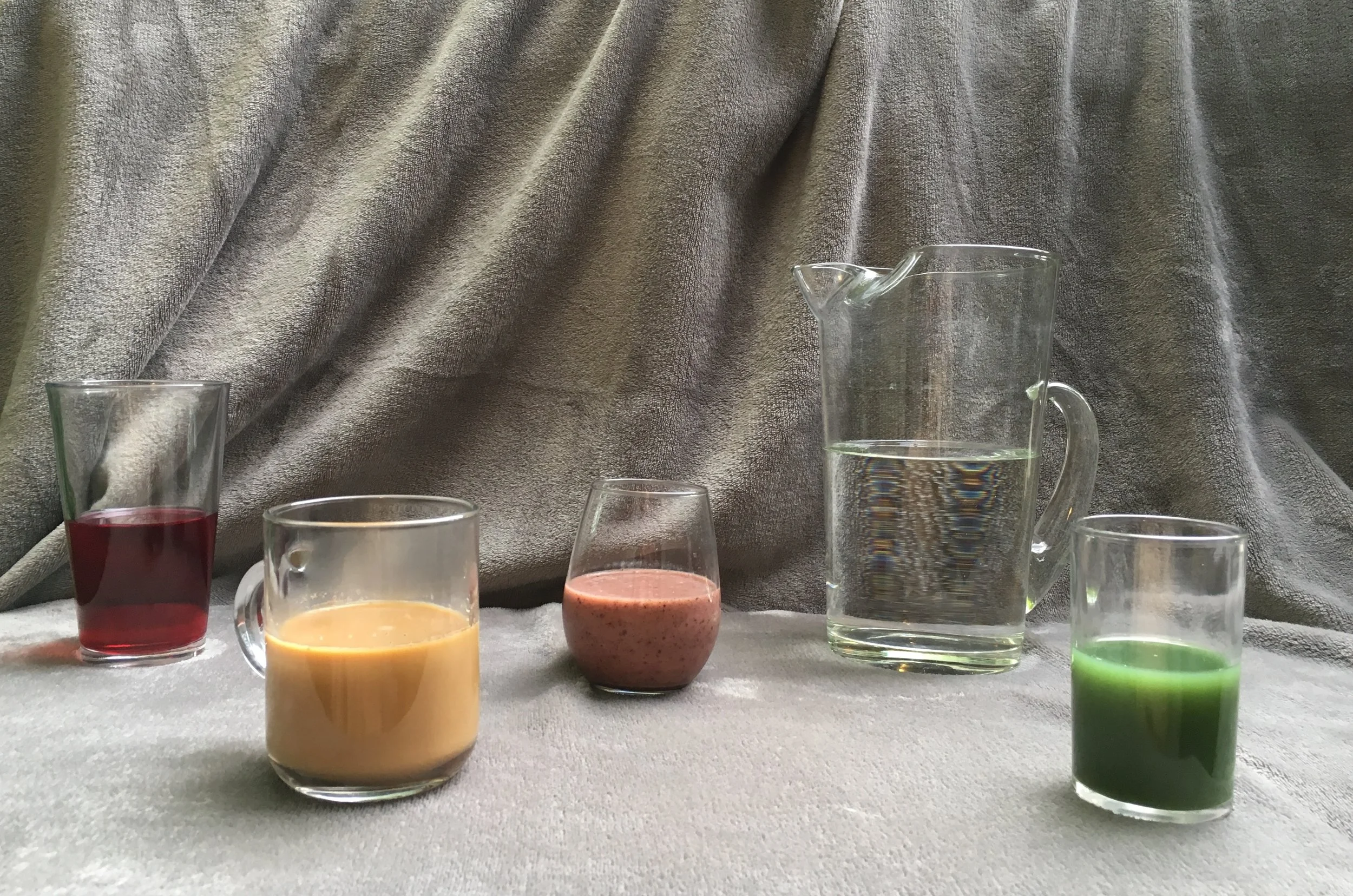Expect the Unexpected
Let Go and Embrace What May Arise
Are you at the helm of a rowboat or a canoe? Do you look back to move forward as in a rowboat or do you look forward as you paddle in a canoe?
We can move forward in looking back; learn from our experiences and welcome fresh understandings.
Fresh life comes from compost. I witness this regularly with our small, yet productive worm bin that provides “worm tea” and nutritious soil for our garden.
Keep the treasures of traditions and release the baggage of problematic patterns.
Whichever metaphor of the new and old appeals to you, reflect on which parts of your past benefits your potential for a favorable future and which parts to let go of and which to embrace …
Contact me: pathways2tlc@gmail.com for more about perspective shifts.
Connect with Facebook: @tlcpathways
Instagram: maryse_tlcpathways or LinkedIn: Maryse L Postlewaite
A Benevolent Community
26 Days of Cultivating A Benevolent Community
While we look forward to our cities “opening up”, how might we incorporate what we have learned to appreciate over the past few months, into our day-to-day lives … nurturing compassionate relationships, prioritizing our values, and acknowledging gratitudes. Habits have been altered as we practice safe measures for care of others, visibly by wearing masks.
We have an opportunity to change our “invisible habits”, leading our lives with empathy, balance, reflection, kindness, and trust. I have 21 others, key words to guide us day-by-day. “Bit-by-Bit”, one act to practice or witness each day and share with others.
Beginning June 1st, join me in 26 days of cultivating A Benevolent Community. Daily, I’ll be posting a letter with some key words to use as an anchor for the day. Share with others, how you practice or how you witness this in action.
Contact me: pathways2tlc@gmail.com to set up a workshop.
Connect with Facebook: @tlcpathways
Instagram: maryse_tlcpathways or LinkedIn: Maryse L Postlewaite
Growing OUT of the Box
Creative Ideas for New Beginnings
It’s one thing to think out of the box. Imagine growing out of the box or out of your comfort zone. Haven’t we had to experience this recently? So how to make the best of these times. Acceptance, Trust, and Community have been essential for me.
We don’t generally invite obstacles, challenges, or hurdles to leap over. However, my experiences have led me to know that great growth occurs once acceptance and trust are present. My community of friends and family have supported me during difficult moments. And in these current times, that community has grown tremendously with neighbors, friends, and the many thought leaders who have made available great resources. Individually and globally, we have an opportunity to cultivate care for one another and our world. Just as our planet is benefitting from the clean air and slower pace, let’s elevate our relationships as global citizens.
We can adapt. We have adapted. Opportunities for new beginnings have emerged. It is up to us to embrace new beginnings.
We can alter our story and change our questions. For example, what has NOT been cancelled? How have our lives changed for the better? What have been the advantages of Shelter in Place? What lessons and new habits, might we adopt for our future? We can implement these bit by bit. (More on that soon.)
Share what commitments you want to make to contribute to a better life, not only for our own sake, but for our neighbors across the globe, and future generations.
Contact me: pathways2tlc@gmail.com to set up a workshop.
Connect with Facebook: @tlcpathways
Instagram: maryse_tlcpathways or LinkedIn: Maryse L Postlewaite
Reviving Singing Telegrams
Bringing Joy through Simple Gestures
Finding ways to bring joy to others is a powerful pathway in which both the giver and receiver benefit from the relationship. (Source below.) The brain science affirming this is outstanding. Our personal experiences reinforce this, too.
Eighty-seven years ago, singing telegrams were conceived of by George Oslin as an alternative to the association of a telegram only with death or other tragic news. Singing telegrams were first delivered in person since many people did not have a telephone.
Several years ago, small groups of children from my upper elementary class offered singing telegrams for Mother’s Day. I was on the call which my mom and aunt received from one of those groups. The joy on my mom and aunt’s face has stayed with me all these years.
Join me in reviving the tradition of singing telegrams! Share with the children, young and old, who are looking for what to do in the day when going out is limited. Reach out to the elderly, in particular, who may not be allowed to leave their apartment.
Consider some of Ella Fitzgerald’s hits like “I Want to be Happy” or “Blue Skies” or “Accentuate the Positive”. If you are not inclined to sing, then find a recording of a favorite song and just play it.
Join me in circulating around the globe the gift of song, renewing former trends, and spreading joy, particularly appreciated during these challenging times.
Contact me: pathways2tlc@gmail.com to set up a workshop.
Connect with Facebook: @tlcpathways
Instagram: maryse_tlcpathways or LinkedIn: Maryse L Postlewaite
The most precious gift we can offer others is our presence. When mindfulness embraces those we love, they will bloom like flowers. --Thich Nhat Hanh
Do You Evoke Ubuntu?
We All Belong to Each Other
A friend shared with me the concept of Ubuntu. It’s a practice worth spreading! Recently, I read the story of the group of young children who joined arms to run together towards a prize of candy which was meant for the fastest runner. They were practicing ubuntu naturally as part of their culture.
Archbishop Desmond Tutu’s explains his understanding of Ubuntu: “Africans have a thing called Ubuntu. We believe that a person is a person through other persons, that my humanity is caught up, bound up, inextricably, with yours. When I dehumanize you, I inexorably dehumanize myself. The solitary human being is a contradiction in terms. Therefore you seek to work for the common good because your humanity comes into its own in the community, in belonging.”*
Each community we are a part of, relies on our contributions, great or small. Simply our presence can make a difference. Consider your participation in the various communities which you are a part of… family, clubs, interest groups, work, boards, sports affiliations, your city, your country… You are a part of each of these and each is a part of you.
Besides practicing Ubuntu, how else can we build stronger communities? Communication is a key. Influenced by a new class I’m attending, I’ve been considering authentic communication. When am I impulsively speaking out of a reaction or my conditioned responses? How can I create a safe space for others to share authentically and I practice active listening?
I invite you to spread the idea of Ubuntu and find ways to practice it in your communities, with attention to the ways of communicating with one another.
Send an Email: pathways2tlc@gmail.com to set up a workshop.
Connect with Facebook: @tlcpathways
Instagram: maryse_tlcpathways or LinkedIn: Maryse L Postlewaite
* photo & quote credit https://www.tusharvakil.com/2018/04/27/do-you-have-ubuntu/
How is a Community Like a Wheel?
Interconnections in our Communities
The wheel is a metaphor for the structure of a community. Imagine that each spoke represents a person in the community. The spokes joining at the hub provides strength, stability, and ease in moving the society along. The hub is what connects each individual. Each person is interdependent as are the spokes of the wheel. Should one spoke break, then the wheel no longer moves forward smoothly. By contrast, one strong spoke can help support the rest of the group. Think of peace advocates who have impacted your life. The influence of the individual is significant.
Build a sense of community with each group you are a part of. For years, I introduced many team building activities within the first weeks of the school year. These proved to be beneficial when our class faced difficult decisions together. Since I had introduced the idea of how our community was like a wheel, solutions that we considered would weigh in on what was best for the group. Sometimes discussions on compromise would arise. The goal is to find Win-Win solutions.
To unpack this metaphor further, we discuss how the hub at the center is what brings the community together. The children identify the different communities they are a part of…family, sport teams, clubs, classes, city, country, even the world. We are members of multiple communities to which we have an allegiance.
At times, children from the same classroom found themselves playing on opposing sides of a team sport. The question would arise, to which community is your strongest allegiance? Doesn’t this happen for adults whose family members are from a different church, a different political perspective, or have different values. Regardless of these separate communities, we are all members of the human race, a community as a whole. We are different and we are one.
When I am the broken spoke or the one supporting others so that the wheel moves steadily, I’ve found the Golden Rule to be my guiding principle.
As J.K. Rowling writes, “We are only as strong as we are united, as weak as we are divided.”
For more ideas about building community, send an Email: pathways2tlc@gmail.com to set up a workshop.
Connect with Facebook: @tlcpathways
Instagram: maryse_tlcpathways or LinkedIn: Maryse L Postlewaite
Positive Thinking
The Power of Positivity
How we overcome obstacles, makes a difference. For his many accomplishments, Henry Ford had as many if not more hurdles to overcome. He was raised on a farm, along with his seven siblings. At the youthful age of 15, he built his first steam engine. He disliked farm work, a motivating factor for his eight mile walk to Detroit at the age of 16, to find work in a machine shop. Some think that he invented the automobile or assembly line. However, he did neither. He developed and manufactured the first affordable automobile. Ford overcame many, many obstacles, and has to his name 161 unique patents. Another famous quote of his, “Don’t find fault, find a remedy.”
Some years ago, a friend said to me, “Be careful what you tell yourself.” I find myself remembering this when negative thoughts creep in.
Fostering a positive attitude makes a difference in our overall health. Reframing our challenges is a first step. Visualize possibilities by changing your language, using the “Power of Yet”. Journaling daily gratitudes has been known to impact our thoughts favorably. Warren Buffet stated that one of his keys to happiness is to surround himself with positive people. Now over 90, he continues to be active, going to work regularly (though his retirement is around the corner.) He describes as another key to happiness…to be passionate about the work you do. These principles resonate with me.
Take some time to consider how you can expand your positive outlook. We can train our brain in a relatively short amount of time to permanently raise levels of happiness. Join me on this quest.
To learn more about our brains and neuroscience, register for the online course on Conflict Resolution. http://learn.kidpower.org/course/conflict-resolution-pathways Or email pathways2tlc@gmail.com
Connect with Facebook: @tlcpathways
Instagram: maryse_tlcpathways or LinkedIn: Maryse L Postlewaite
See the Beauty
How You See Things Makes a Difference
Nature’s beauty is appreciated by many. Humans live within this beauty, however, the changes we impose are not always considered beautiful. I see evidence of this as I look down below from 30,000 feet high. I am called to see the beauty in the people around me. This has had its challenges for me with people who look different, people I don’t know, and people with whom I disagree.
Maybe I’ve treated people like songs on a radio station? With some songs I turn up the volume up high and “rock out”. Then there are others which within a nanosecond, I switch stations. People are as varied as styles of music. However, we don’t always have the luxury of tuning out those with whom we have challenges.
On a recent trip across the states, I used the shuffle mode on the music playlist which is comprised of Tom, my husband’s, downloads. Instead of catching up on some sleep as I expected, I chose to listen to whatever came up, as I was inspired. I didn’t envy my seat mates, folks from Vietnam, as I found myself practically dancing in my seat, trying to be discreet Ha! I believe the smiles we exchanged meant that “All is well”.
Many of the downloaded songs I had never heard before. Some were from our adult children and others collected by Tom, maybe from “hanging out” with the teenagers he teaches. Being exposed to this great variety, I have been pleasantly amazed to discover a song which might initially sound dissonant, to be catchy or have inspirational lyrics.
Then Peter, Paul and Mary’s El Salvador plays. It’s a song of my past, yet the lyrics still ring true — too true. I’m so pained, brought to tears, by how we are treating immigrants today. Our nation is made up of immigrants or children of immigrants as I am. “Who put this price on their liberty?” they sing.
Then randomly the shuffled playlist selects Moonlight Sonata for me and takes me back to the many times I practiced it on the piano to try to master this classic. It’s soothing. Perhaps it’s time for that rest, resting with the faith in people to do right by one another. As Aretha Franklin hails us to have R-E-S-P-E-C-T.
Like the varied landscape below me, traveling across our country, the assortment of music on my phone, the diversity of people on this flight, all and everyone has its beauty to appreciate. I commit to personally treat those I encounter with lenses looking for their inner beauty and listen to any music, willing to be delightfully surprised.
Send an Email: pathways2tlc@gmail.com to set up a workshop.
Connect with Facebook: @tlcpathways
Instagram: maryse_tlcpathways or LinkedIn: Maryse L Postlewaite
Think Outside the Box
Discovering Creative Solutions
Do you know the expression, to think outside the box? Maybe you’ve heard it to encourage creativity in solving problems. You can implement this particularly when settling interpersonal conflicts. If we fall back on habits of making assumptions, judgments, especially of people we’ve known for a while, we are likely to have similar results, and not moving closer to a more positive outcome.
The expression, “Think outside the box” originates? From Sam Lloyd’s 1914 Cyclopedia of Puzzles. Maybe you’ve seen this. Try it. Draw nine dots, shown here; link all 9 dots using four straight lines, without lifting the pen and without tracing the line more than once. (Contact me for the solution.)
You can implement this particularly when settling interpersonal conflicts. If we fall back on habits of making assumptions, judgments, especially of people we’ve known for a while, we are likely to have similar results, and not moving closer to a more positive outcome.
How can this apply to your relationships? Take one of your more recent conflicts you’ve had with a co-worker, friend or family member and reflect on what you could have done differently in the situation. Consider how the outcome could be different. Think outside the box! Avoid an approach which heightens discord. Evaluate the timing, being sure that each is calm and open to listening. Try humor, writing a note, something unexpected to initiate a different conversation. Envision your preferred results.
Many times I’ve noticed that conflicts are more likely to arise for me when I’m feeling anxious, concerned or untrusting. If I have reflected on the root of my feelings and I’ve practiced alternative approaches, I’m more likely to have positive results.
Participants of the workshops I lead have confirmed that practicing communication skills and perspective taking, learning about neuroscience, and collaborating with their group through interactive and engaging activities has benefited them in their relationships.
To learn more, send an email: pathways2tlc@gmail.com.
Connect with Facebook: @tlcpathways
Instagram: maryse_tlcpathways or LinkedIn: Maryse L Postlewaite
Half-full or Half-empty?
Avoid Negativity Bias
Is your glass half-empty or half-full? Most of us like to think that we see the glass as half-full. Our approach to our day-to-day life is affected by our perspective. We are influenced by circumstances, some not in our control. However, we can sway our biases and tendencies with a positive outlook and favorable habits.
Research indicates that our brain reacts more strongly to negative stimuli, than positive. Early humans’ survival depended on being vigilant of danger. However positive acts, thoughts, and experiences can override this. It does take focused effort.
William Shakespeare stated, “There is nothing either good or bad, but thinking makes it so.”
Here’s an idea to keep your thinking in the positive. When making statements either aloud or to yourself, express them in the positive: Change “I don’t like to wash the car.” to “I like a clean car.”; “I can’t get to the gym.” to “I feel better after a work out.” This is particularly helpful when engaging others in setting rules, state them in the positive. Instead of “Don’t interrupt.” say, “One person speaks at a time.” Change, “Don’t hit.” to “Keep your hands to yourself.”
For more constructive ways to affect your perspective for the positive, set up a workshop to support and practice positive habits through interactive initiatives. Send an email: pathways2tlc@gmail.com.
Connect with Facebook: @tlcpathways
Instagram: maryse_tlcpathways or LinkedIn: Maryse L Postlewaite
Speaking Another Language
Do We Mean the Same Thing?
Do you speak another language? Yes, we all do sometimes because we associate different meanings to the same words, even in the same language. We can clarify misunderstandings in “learning one another’s language”.
Here’s an example: What do you mean when you say, “Just the other day…”? The difference in the reference of time lapse may be different. When my mom uses that phrase, she means within the past 2 weeks, whereas for my dad, it would mean up to a year ago!
It’s easy to assume that we mean the same thing when we say something. It’s relative to our own experiences, perspectives, and customs. Young children learn language from their family, tribe, and community. And then there are non-verbal ways we communicate which also can be misinterpreted. (More on that soon.)
Communication is key. Let’s assume the best. If we find ourselves in a situation when we may have mistaken what someone has said to us, let’s ask questions to clarify. We may simply have had an alternative definition to the same word or phrase.
I invite you to share other examples of these types of miscommunications. We are not alone. It happens to us all.
For more about fine tuning communication skills, send an email: pathways2tlc@gmail.com.
Connect with Facebook: @tlcpathways
Instagram: maryse_tlcpathways or LinkedIn: Maryse L Postlewaite
Empathy Cultivates Understanding
Can we walk in the shoes of others? How can we become more empathetic? What are the benefits of doing so?
Research indicates the favorable benefits of being empathetic, reshaping our neural circuitry and altering how we interrelate with others for the positive.
Consider these findings: The research team headed by Tania Singer said, “When assessing the world around us and our fellow humans, we use ourselves as a yardstick and tend to project our own emotional state onto others.”
Moods can also affect the neural source of empathy. If we boost our positive perspectives, we more easily show empathy. Due to the neuroplasticity of our brains, we can make choices that allow us to transform our mindset.
Taking a multi-pronged approach to having a more positive outlook is best. That’s why shoes come in different sizes! Here are some ideas you could try.
***Spend time in Nature ***Volunteer ***Meditate ***Express Gratitudes ***Perform Acts of Kindness ***Practice Mindfulness ***Do something Creative
You’ve heard the expression, “You can’t understand someone until you’ve walked a mile in their shoes.” Reaching a richer understanding of another’s perspective improves our relationships.
Here’s some history: Although the word “empathy” has its roots from the Greeks, its use is fairly new to the public, just a little over 60 years. Surprising and possibly telling:
In 1955, Reader’s Digest defined the term, which was new to the public outside of academia, as the “ability to appreciate the other person’s feelings without yourself becoming so emotionally involved that your judgment is affected.”
Research indicates that showing empathy is also a key ingredient of successful relationships because it helps us understand the perspectives, needs, and intentions of others.
For information to promote empathy and nurture more compassionate relationships for the rest of your life, send an email: pathways2tlc@gmail.com.
Connect with Facebook: @tlcpathways
Instagram: maryse_tlcpathways or LinkedIn: Maryse L Postlewaite .
Value of Reminders
A Prompt Helps us to Remember
Do you know where the idea to tie a string on your finger to help you remember something originated? In Greek mythology, Ariadne gave Theseus the thread with which he found his way out of the Minotaur’s labyrinth. In times gone by, gentlemen would tie a knot in their handkerchief to remind themselves of something important.
Eternity Knot Bracelets.
Science indicates that as animals, we are wired as “out of sight, out of mind” beings. The string is a prompt. Rings, bracelets, even rocks can be prompts. Choose a prompt which works for you. Consider a habit you’d like to change and let your prompt be your reminder. I’ve worn an eternity knot bracelet to help me be a better listener. I’ve distributed “gratitude rocks” to remind us to think of for what we are grateful each and every day. Research indicates that expressing thanks rewires our brains and produces extraordinary health benefits!
Contact me to set up a workshop and I’ll incorporate this activity in the customized, interactive workshop for your group. Send an email: pathways2tlc@gmail.com.
Connect with Facebook: @tlcpathways
Instagram: maryse_tlcpathways or LinkedIn: Maryse L Postlewaite



























